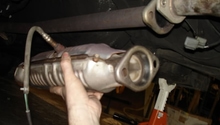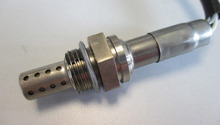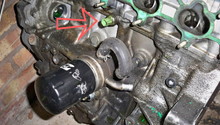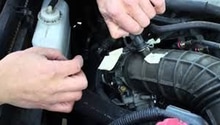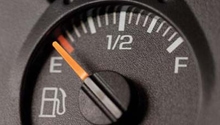Honda Accord: Why is My Car Backfiring?
Numerous components of the engine can cause it to backfire, and scare you in the process. This article will explore the ways to detect and repair the source of the problem.
This article applies to the Honda Accord (1990-2002).
When the combustion chamber of the engine in your Accord has an air/fuel ratio imbalance, the result will probably be a backfire. This is characterized by a loud explosion, either in the intake manifold or the exhaust system. If the fuel mixture is inadequate, a misfire occurs in the intake manifold. But if the fuel is excessive, the backfire will occur in the exhaust system. Correcting the imbalance by increasing or decreasing the air/fuel percentages will sort out the problem of misfires and backfires. At a glance, backfiring is un-burnt fuel exiting through the exhaust, and causing poor fuel economy. In this article, you will read the reasons why your Accord is backfiring, and the solutions to resolve them.
Step 1 – Check the spark plug timing
If a spark plug ignites at the wrong time, a backfire will occur when the exhaust valve is open. It will also occur if there is non-combustion fuel in the exhaust system, and the spark plug wires touch each other when the exhaust valve is open. The touch will ignite the fuel in the exhaust manifold, resulting in a loud backfire bang. If the spark plug timing is wrong and the air/fuel mixture combustion is not complete, a backfire will occur. The components that control these engine synchronizations—distributor and knock sensor—may need to be repaired or replaced. Replacing the knock sensor is simple; however, the distributor may be a more difficult task to repair or replace, so taking it to an auto shop may be the best solution. Labor costs may start at $100 with an additional $100 for parts.
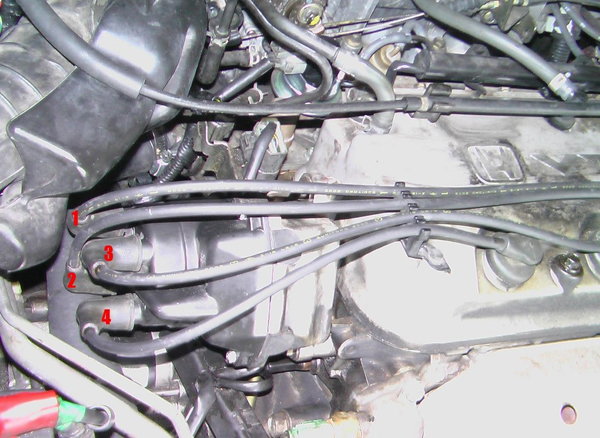
(Related Article: How to Replace Knock Sensor - Honda-Tech.com)
Step 2 – Check the oxygen sensor
The oxygen sensor is located in the exhaust manifold. The sensor monitors how much non-burnt oxygen is in the exhaust pipe as the exhaust exits the engine. This monitoring of oxygen levels helps to balance out the air/fuel mixture, and evaluates if the mixture is burning less or more oxygen. When the oxygen sensor is faulty, your Accord will have poor fuel economy. As a result, when unused fuel is ignited by the spark plugs, it will exit the exhaust in conjunction with a loud backfiring sound. Replacing the oxygen sensor can solve the problem, and costs anywhere between $20 to $50.
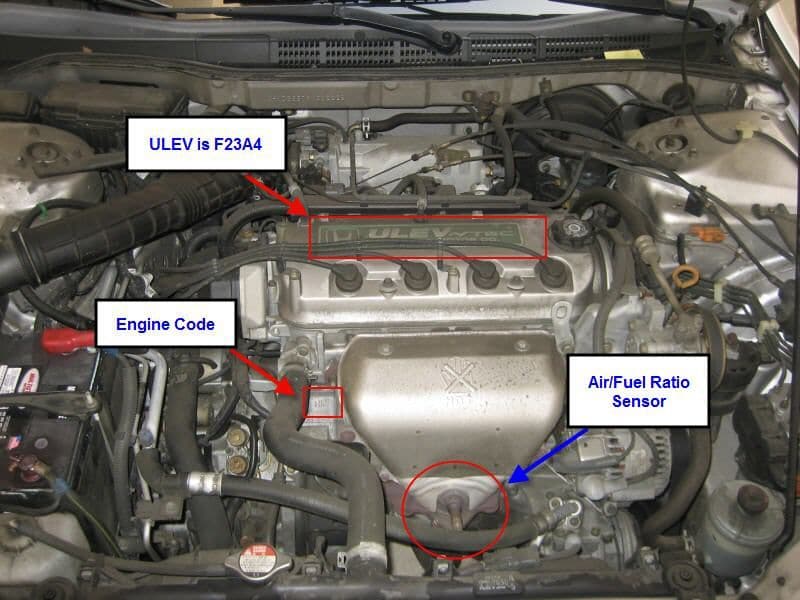
Pro Tip
Backfiring destroys the exhaust valves since they are not made to stop the ignition of residual unused fuels. In turn, this can create a ton of damage to the engine.
Step 3 – Check the intake manifold
The intake manifold is comprised of tubes that evenly distribute air entering the engine and to each of the cylinders. This component ensures that uniform air/fuel mixtures are constant. But when those air/fuel mixtures are compromised, the engine will develop problems. One common cause is a vacuum leak. When there's a leak in the manifold, extra air will seep in and interfere with the air/fuel mixture. These leaks can also be caused by a faulty exhaust gas recirculation (EGR) valve. These imbalances (primarily caused by amounts of air and exhaust gas within the system) will result in a backfire, and the best solution would be to repair the source of the leak or replace the part completely. EGR valves for the Honda accord range from $50 to $100, and taking your car to the shop for diagnosis and repair will cost upwards of $300.
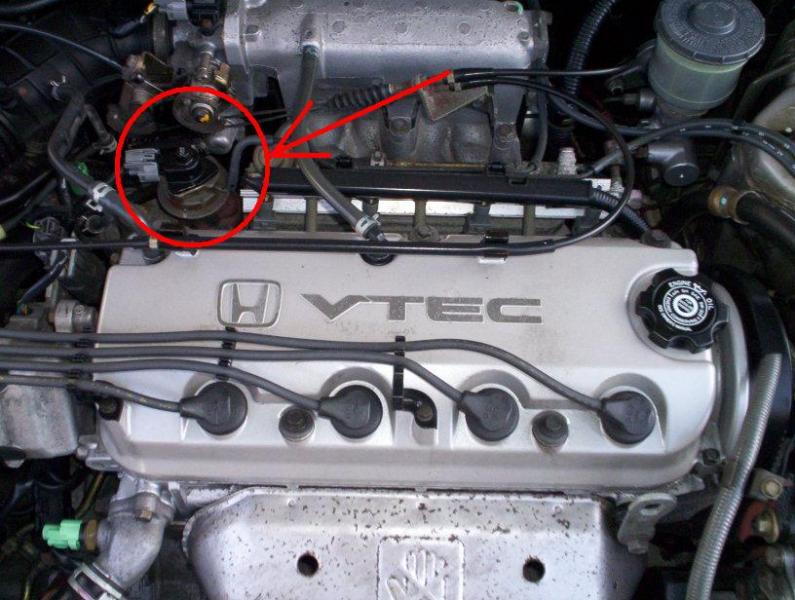
Related Discussions
- Honda Accord Backfiring Problems - Honda-Tech.com
- '93 Accord Starves for Fuel and Backfires - Honda-Tech.com
- Accord Backfires and Hesitates - Honda-Tech.com
- Accord How to Remove Intake Manifold - Honda-Tech.com

